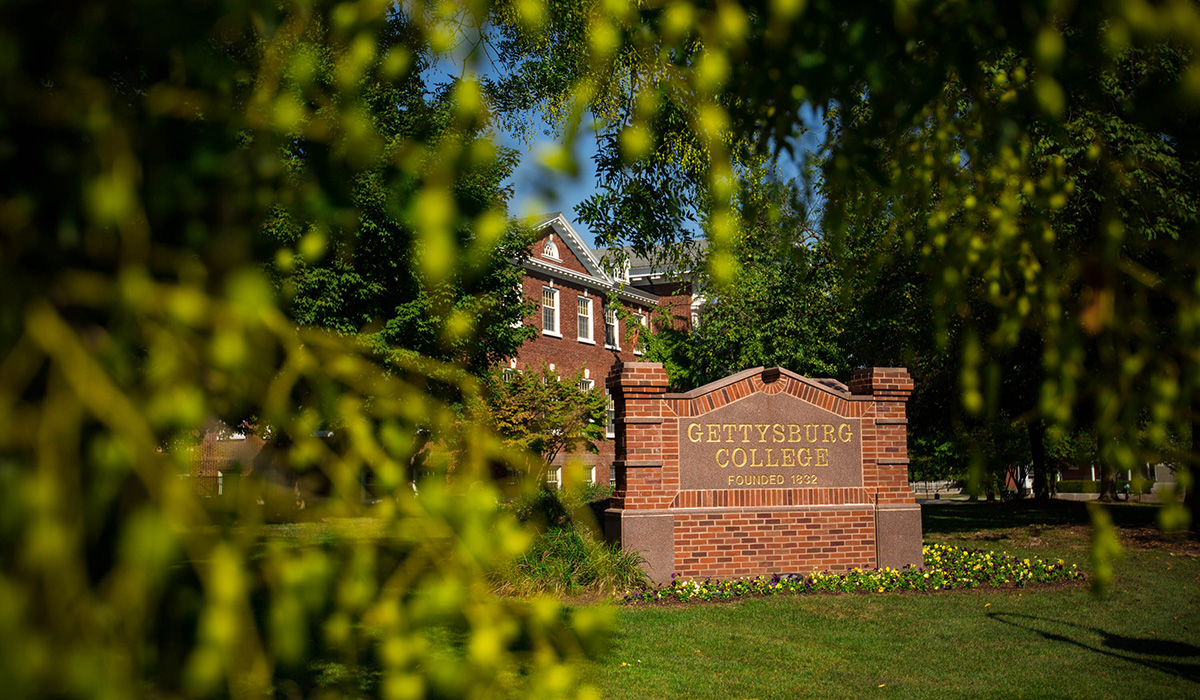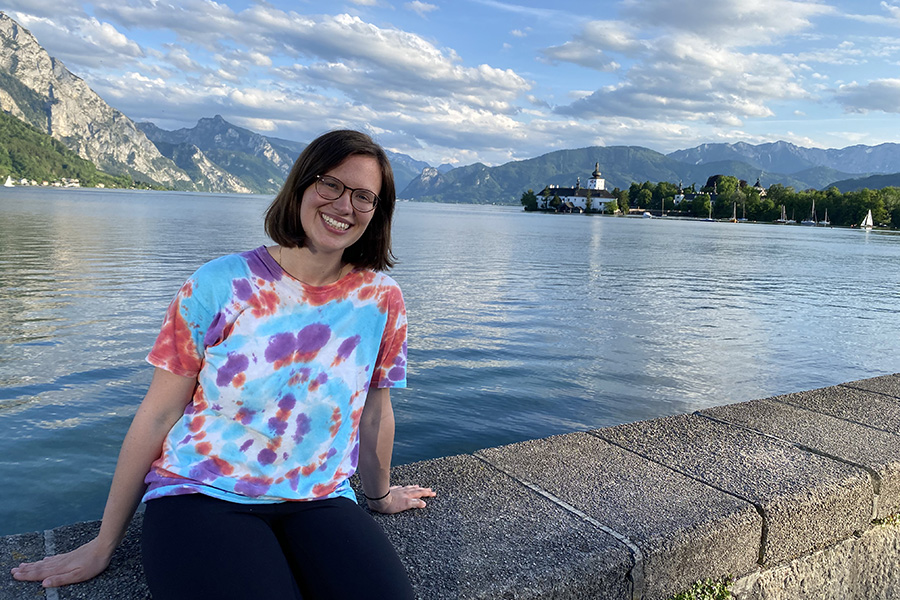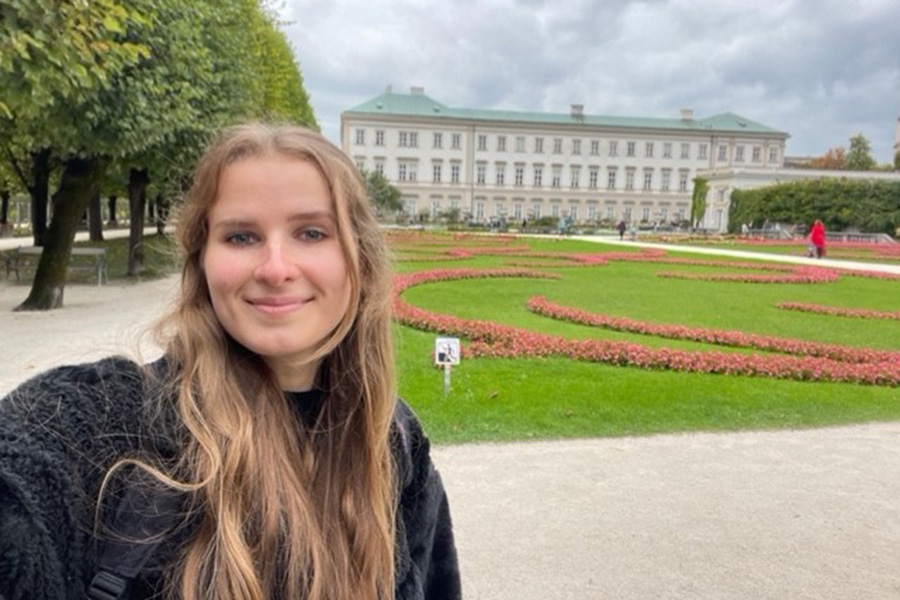
Earlier this academic year, Sophia Gravenstein ’22 and Emma Schilling ’21 were awarded the prestigious USTA Austria grants. While accepting the USTA grant to go to Austria, Schilling was also awarded a German Fulbright grant. Both of these grants send students to Germany and Austria for a year, with the USTA Austria grant offering recipients the opportunity to extend for a second year.
Fulbright grants, created by Senator J. William Fulbright, are grounded in the notion of promoting “mutual and cross-cultural understanding” after the conclusion of World War II. Their focus on Germany and Austria came as a result of the Allied Powers’ occupation of the countries after the aggression and rise of fascism due to Hitler. There are currently 140 teaching assistantship grants via the German Fulbright Commission, with Austria offering just a handful of Teaching Fulbrights. However, the majority of Austrian teaching assistantships run through the United States Teaching Assistantship (USTA) program, a separate program of the Austrian Federal Ministry of Education, Science, and Research that is administered by Fulbright Austria.
“The value of the cultural experiences and exchanges that happen as a Fulbright scholar or teaching assistant is impossible to describe,” said German Studies Prof. Kerry Wallach, noting the intercultural fluency skills students gain as a core value of the grant. “All graduates who have won these grants distinguished themselves in their coursework, particularly in the field of German Studies. They have also all demonstrated above-average language skills in German and have taken advantage of the opportunity to study abroad.”
Gettysburg’s recipients of these grants are nearly always German studies majors or minors. Both Gravenstein and Schilling double majored in German studies and another field¿Gravenstein also studied art history and Schilling pursued English.

With the USTA Austria grant, Schilling spent the first year after she graduated teaching English to high school-aged students in Gmunden, Austria. She then extended her stay in Austria and now lives in Vienna, where she is enrolled in a master’s program studying Anglophone literature and cultures at the University of Vienna.
“It’s been amazing and challenging and stressful—sometimes all at once. But one thing I can say easily, it’s been the most rewarding experience of my life and I feel very honored to be here and am so excited—and prepared—for whatever comes next,” Schilling said. “By the end of my first year, I was amazed at how much my German had improved, and maybe more importantly, at how much more comfortable I was with the language.
“Being thrown in what felt like middle-of-nowhere Austria all alone was a frightening and stressful experience, and I had no idea what to expect. But I’m so happy that I pushed myself through the initial challenges, because by the end I accomplished things I never thought I would be able to,” she continued.

Also currently working as a teaching assistant through the USTA grant, Gravenstein is currently placed in Linz, Austria, and is hoping to continue with the program next year, ultimately pursuing a master’s degree in an art history-related field such as museum studies.
“My visa allows me all of the rights of an Austrian citizen except for voting, so I have access to partially free education here. I will definitely take advantage of that,” Gravenstein said.
Both graduates are incredibly grateful to the professors in Gettysburg College’s German Studies Department for leading them to where they are today.
“If you had asked me even a couple of years ago where I thought I would be today, living and teaching in Austria would not have even been an option,” Schilling said. “I have all the professors in the German Studies Department to thank for this opportunity. I’m so grateful for their support and encouragement, which inspired me to not only continue studying German and pursue a German major, but also to apply for programs like this one.”
“Prof. [Richard] Lambert in the German Studies Department suggested the Fulbright and USTA programs to me,” added Gravenstein, who served as a peer teaching assistant for three semesters in the German Studies Department. “[All] the professors were so supportive in my application process. They connected me with another Gettysburg graduate in the USTA program, helped me with my application essay, and wrote positive letters of recommendation.”
Gravenstein felt prepared to be a teacher thanks to Gettysburg’s faculty.
Prof. Wallach echoed her sentiment, recognizing Prof. Lambert’s ability to prepare Gettysburg students to submit strong applications for the program by meeting with program officers in Vienna to learn more. Through these grants, Gettysburg students can not only travel, but they also network and grow personally and professionally while searching for longer-term employment.
“Students in these programs gain practical work experience, which can make a résumé stand out and open new doors to an extensive and global alumni network—all while allowing them to travel all over Europe,” Wallach said.
For students interested in applying to these programs, Fulbright applications open in the spring semester of a student’s junior year. Completed applications are submitted before October of their senior year. The USTA Austria has a later deadline, and students may apply up until January 15 of their senior year for a grant in the coming fall.
“You will learn so much about yourself by being alone in a new place,” Gravenstein said. “We grow by doing the things that make us uncomfortable, and this experience has proven that to me. After two months here, I still have moments where I walk in Linz or wake up in my apartment and realize that I’m living my dream. You can do the same!”
Learn more by visiting the German Studies Department webpage.
By: Cameron Jury ’23
Posted: 09/25/23